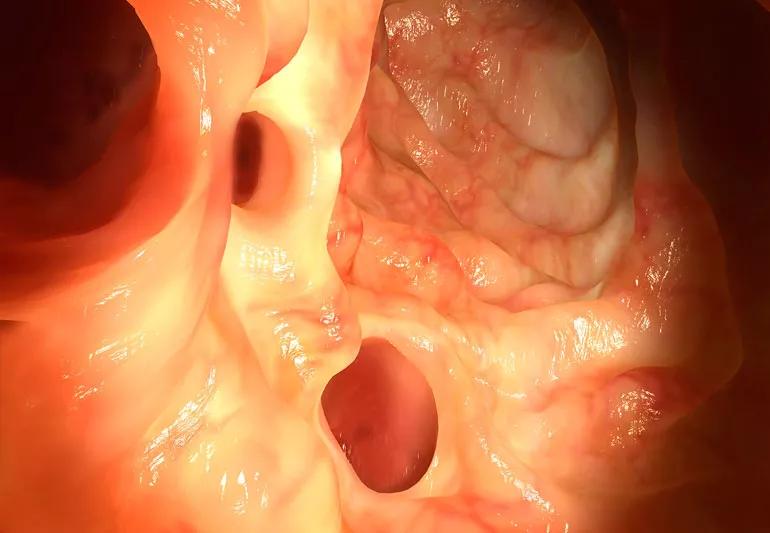The short answer from a colorectal surgeon

A: If you’ve had repeated bouts of diverticulitis, you have chronic diverticulitis. When those repeated bouts happen within a short period of time, that’s often referred to as smoldering diverticulitis. That’s where the disease doesn’t resolve — just like the embers of a fire.
Advertisement
Cleveland Clinic is a non-profit academic medical center. Advertising on our site helps support our mission. We do not endorse non-Cleveland Clinic products or services. Policy
This type of diverticulitis often requires surgery. But thankfully, these procedures are often now done minimally invasively, meaning that an open incision from the bottom of the sternum to the top of the pelvis isn’t required. Instead, the procedure is done via small holes in the abdominal wall.
Through these incisions, surgeons take out the part of the bowel that’s diseased, which is in the sigmoid colon (that’s the last third of your large intestine). Then, they reconnect the remaining colon to the rectum — and there’s no need for a bag (stoma).
Patients can typically walk and drink liquids the same day of after surgery and return home after a two- to five-day hospital stay.
— Colorectal surgeon Michael Valente, DO
Advertisement
Learn more about our editorial process.
Advertisement

Most recommended precautions center around minimizing bruising or swelling

Even one drink can have an impact on your cognitive function leading to slurred speech, blurred vision and impaired memory

Understand who may (and may not) benefit

Lorem ipsum dolor sit amet. Et odio Quis vel ipsam omnis eum alias deleniti et placeat impedit non voluptas galisum hic autem enim et cupiditate aliquid. Est beatae quidem non facilis autem ut commodi nisi aut tempore rerum et dolores voluptatem cum enim optio id sapiente quasi. Ad laboriosam officiis 33 cupiditate sequi ea voluptatum consectetur qui necessitatibus voluptate et quasi doloremque et facere explicabo quo explicabo officia

Seeking help through therapy can be an important step in improving your quality of life when you have UC

Type 2 diabetes isn’t inevitable with these dietary changes

Applying a hot or cold compress can help with pain